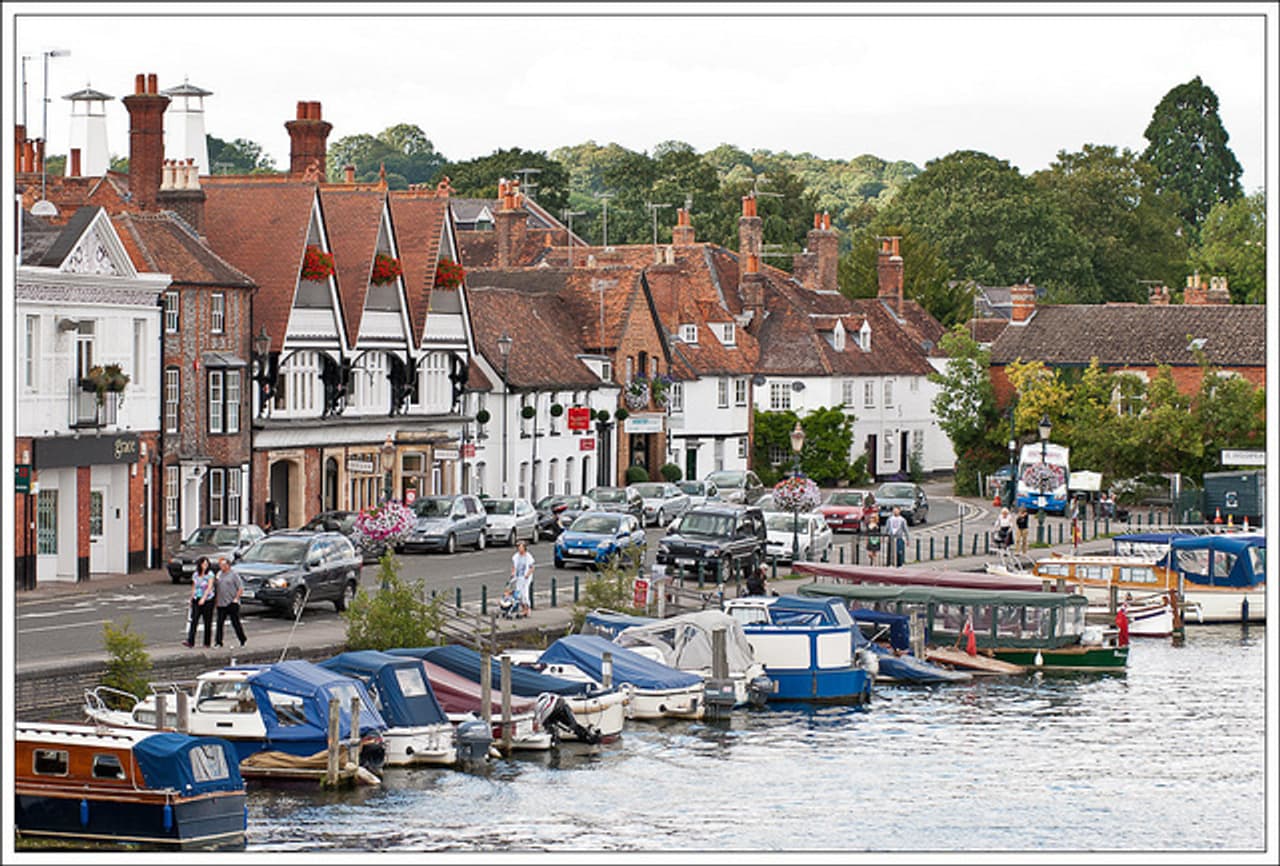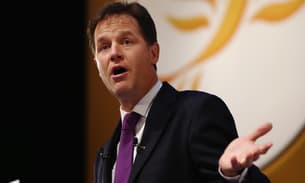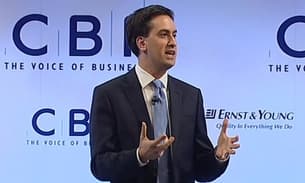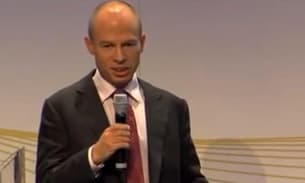
Questions over Tory donation linked to Russian banker
The Conservative Party is refusing to confirm whether a Russian banker was behind a £40,000 purchase of a portrait of Margaret Thatcher auctioned at the Party’s 2013 summer fundraiser.
Andrei Borodin, former President of the Bank of Moscow, was granted asylum four months before the June event after convincing a British judge that charges of ‘aggravated swindling‘ filed against him in Russia were politically motivated.
Details of the 2013 summer party at Old Billingsgate, where the picture was auctioned off, were revealed by the Bureau of Investigative Journalism earlier this week. They showed that Borodin and his wife, model Tatiana Korsakova, sat at Boris Johnson’s table.
Electoral Commission records suggest that the black and white Thatcher portrait may have been bought by Henley Concierge Ltd, a business registered to a cottage on Borodin’s £120m country estate, Park Place, near Henley-on-Thames.
At the time the company, which was only set up in November 2012 and is currently described on Companies House as ‘non-trading’, was owned and run by Borodin’s personal assistant and estate manager, Mario Hinterdorfer.
Hinterdorfer is understood to have left Borodin’s employment in October 2013, returning to Austria. At the same time he resigned from Henley Concierge and transferred his shareholding to a new estate manager.
Borodin has confirmed that he attended last year’s party. But he says: ‘I participated in no conversation on policy or party funding issues nor did I make any donation at the event.’
He and Hinterdorfer have not responded to questions about either Henley Concierge or the Thatcher portrait.
Borodin, Korsakova and Hinterdorfer would have needed to be on the electoral roll in the UK in order to be eligible to personally buy the picture, which qualifies as a political donation.
Political party treasurers are required to check the true source of a donation and, in the case of corporate donors, to satisfy themselves that companies are genuinely carrying on business in the UK.
Rules on declaring donations require the cost of the item put up for auction to be separated from the price paid by the successful bidder.
The Thatcher portrait was painted by fine artist Darren Baker, whose website reads: ‘When this fantastic portrait went to auction at the Conservative Party‘s summer ball on Monday 24th June, after a frenzy of bidding, the lucky winner snatched up Darren’s piece of art for an astonishing £40,000!’
The rules further state that: ‘If the successful bidder pays more than the market price of the item or service; the donation element is the difference between the price paid by the buyer and the value of the prize.’
Electoral Commission records show the value of the portrait was registered as £12,000.
The balance to be declared in relation to the the portrait sale was therefore £28,000.
The only 2013 donation to the Conservative party of that sum was accepted from Henley Concierge Ltd on July 3 last year, just nine days after the fundraiser.
The Bureau asked the Conservative Party what checks it made to establish that the company was genuinely trading in the UK, given that it had not filed accounts. The Bureau also asked the party what it had done to establish the company was not acting as an agent for Borodin.
A Conservative Party spokesman said: ‘All donations to the Conservative Party are properly and transparently declared to the Electoral Commission, published by them, and comply fully with Electoral Commission rules.
‘With regards to this specific donation, the Party fully complied with the Electoral Commission guidance with regards to the permissibility of the donor.’
The Party did not respond to questions about whether Borodin, his wife or Hinterdorfer might have won the auction for the Thatcher portrait.
Yesterday the Bureau revealed that Lubov Chernukhin, the banker wife of a former minister in Vladimir Putin’s government, had paid £160,000 for the chance to play tennis with David Cameron and Boris Johnson.
She won the prize at an auction held at this year’s Conservative summer ball, which took place on Wednesday at the Hurlingham Club in west London.
Lubov Chernukhin and her husband Vladimir both attended the event.
Electoral Commission rules on donations to political parties
Political parties are given 30 days by the Electoral Commission to check whether a donor is permissible before accepting or declining a gift.
Party treasurers are given a copy of the electoral register and are expected to check that companies donating are registered at Companies House and that they are carrying out business in the UK.
An individual or organisation may act as an agent in facilitating a donation to a party – for example where a donor transfers a donation to an agent, who then transfers the donation to the party.
The agent must then provide the party with the details of the donor so that the party can check if the donor is permissible.
‘Transferring a donation to an agent rather than directly to a party must not be used as an attempt to evade the controls on permissibility and transparency,’ the rules say.
Header image: Henley-on-Thames by Jos Dielis at Flickr




